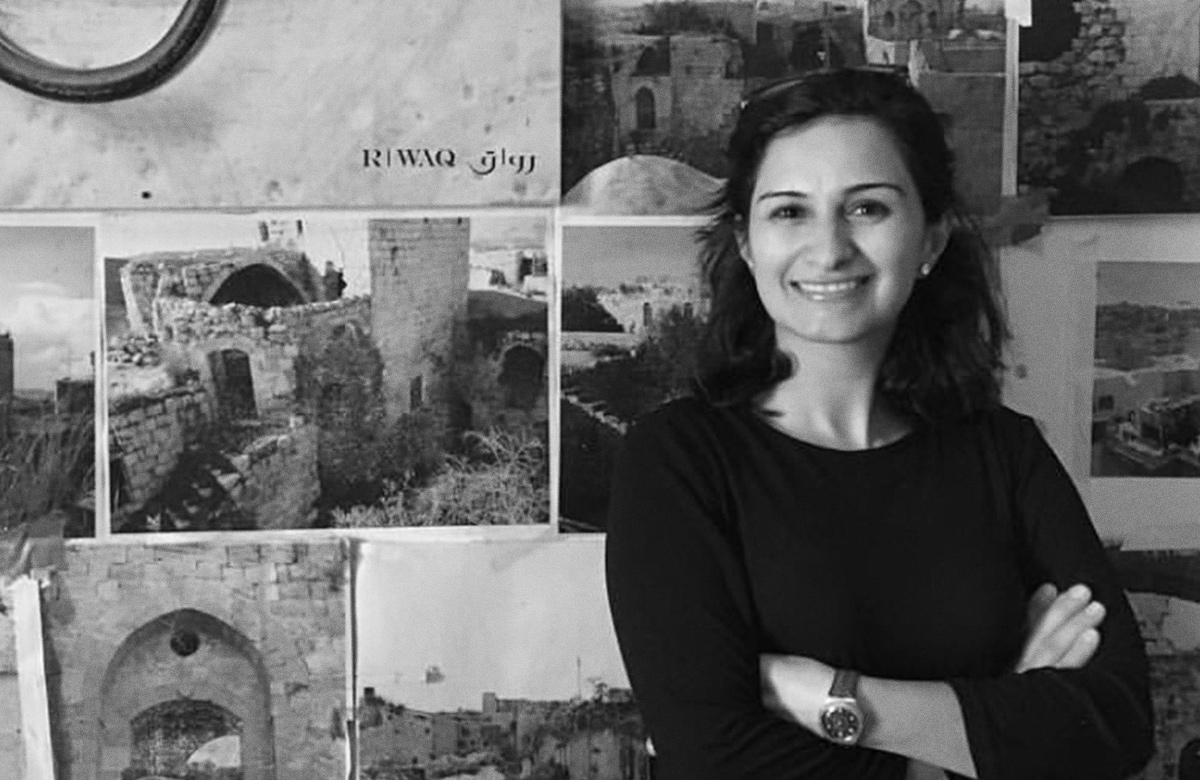
Co-Director, RIWAQ
Shatha Safi
Safi is an architect and has joined RIWAQ in 2008. She received a B.Sc. in architectural engineering from Birzeit University and MA in World Heritage and Cultural Projects for Development from ITILO, Turin, Italy. She has been leading and working on different projects including the rehabilitation projects of Beit Iksa, Hajjah and Birzeit, and Qalandiya. She is interested in cultural landscape and community involvement.
Riwaq is an architectural NGO whose main aim is the protection of cultural heritage in Palestine. In search of an alternative discourse that can cultivate change, Riwaq needed to look beyond the conventional. Since its establishment in 1991, Riwaq saw the protection of historic centres as a key tool for re-interpreting the fractioned landscape and challenging the fragmented geography.
Following the completion of RIWAQ’s comprehensive architectural survey in (1994 – 2004) which resulted in the publication of RIWAQ’s Registry of Historic Buildings, it was revealed that almost 50% of the historic buildings in rural areas of the West Bank and Gaza are located in or around 50 villages. Hence, it has become RIWAQ’s vision to focus on those 50 villages for the near future, working on rehabilitation projects to target improvement of services, infrastructure, and living conditions of the public and private surrounding spaces.
At a time when Palestine is facing setbacks in the political and economic spheres, Riwaq’s 50 Villages endeavor hopes to make a qualitative addition on the regional scale. Empowering communities by offering the means to improve their environment and living conditions implies responding to the urgent issues they face daily. The 50 Villages project is a tool to reconstruct an alternative Palestinian map. This is a conceptual shift that moves away from a conventional restorative approach—that is, conservation and documentation of single buildings—into exploring the wider urban context while protecting its heritage. The project is embedded in a conscious approach to explore what can be done with limited resources, and to cultivate possibilities for change from within Palestinian historic fabrics. This process of re-reading the map is giving birth to new cooperative matrices and networks that are working to stitch together Palestine’s fragmented landscape.
See Shatha talk at Reclaiming Space in Architectural Rehabilitation of Palestinian Villages.